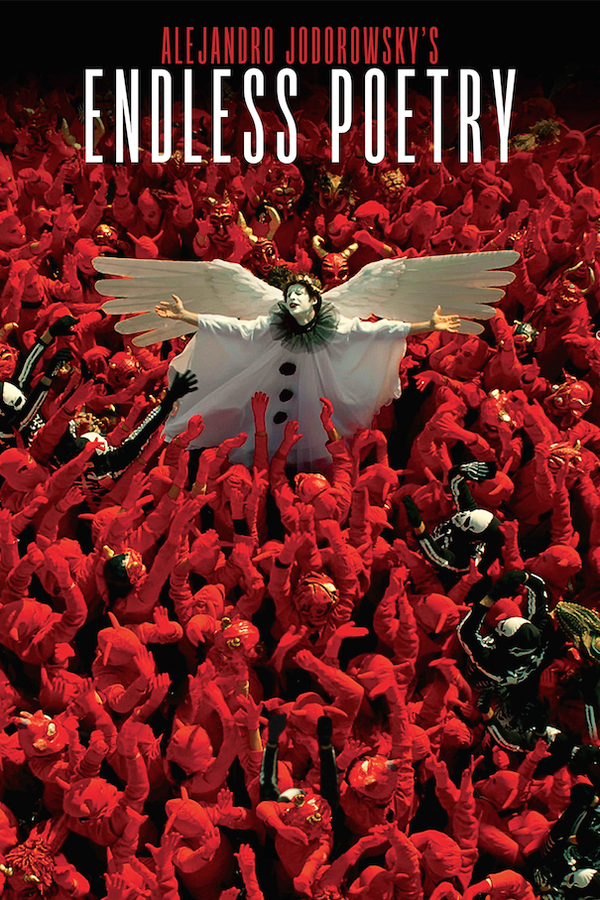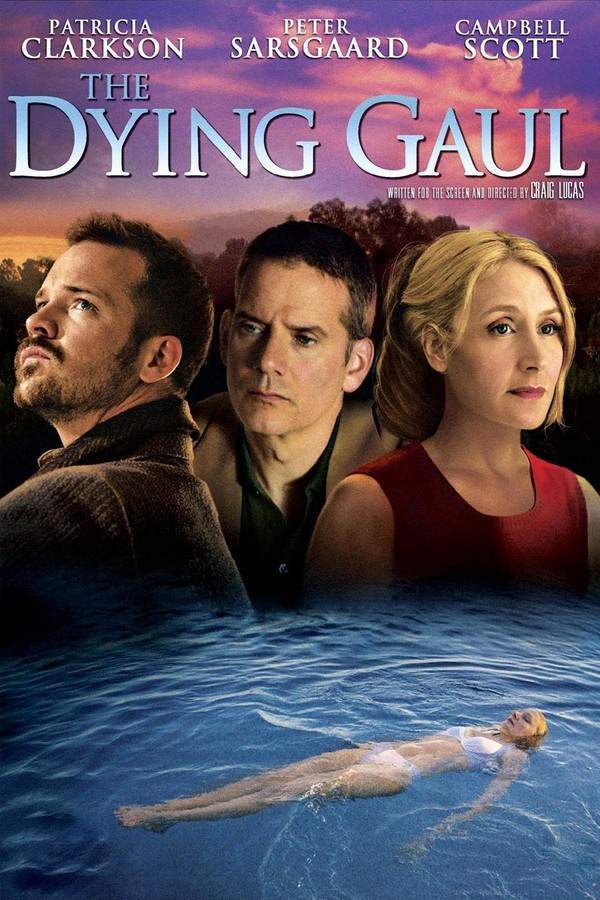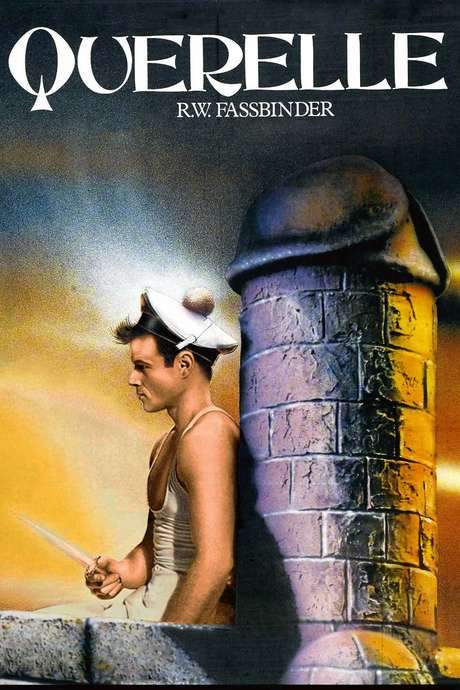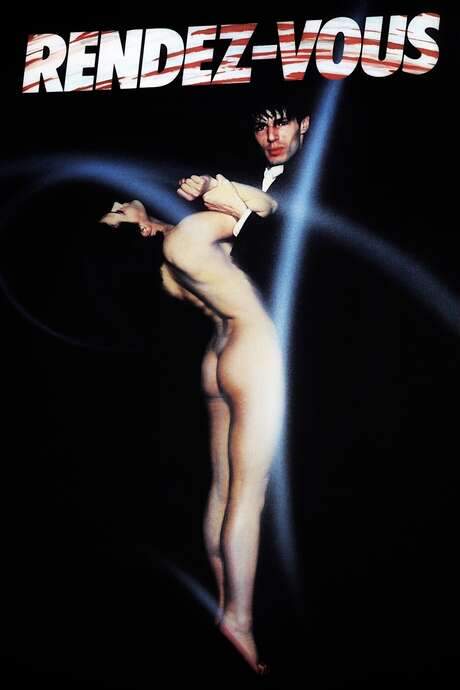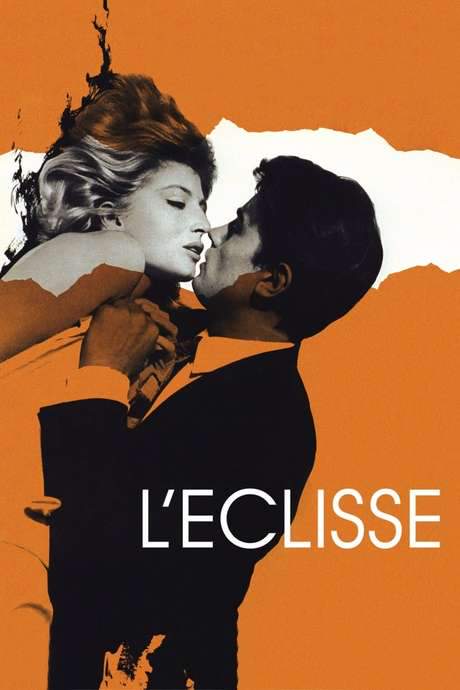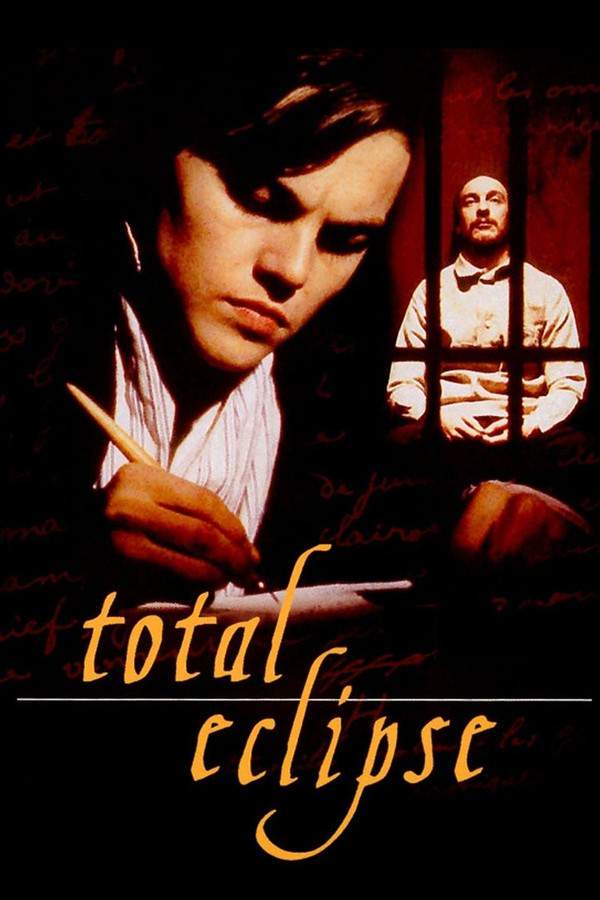
Total Eclipse 1995
Directed by

Agnieszka Holland
Made by

Fine Line Features
Test your knowledge of Total Eclipse with our quiz!
Total Eclipse Plot Summary
Read the complete plot summary and ending explained for Total Eclipse (1995). From turning points to emotional moments, uncover what really happened and why it matters.
The older Paul Verlaine meets Arthur Rimbaud’s sister, Isabelle, in a quaint café located in Paris. Isabelle, along with her mother, requests Verlaine to surrender any remaining copies of Rimbaud’s poetry so they can be burned. This encounter prompts Verlaine to reminisce about his tumultuous relationship with Rimbaud, which began in 1871 when the young poet sent his works from his provincial home. Impulsively, Verlaine invited the teenage genius to his affluent father-in-law’s residence in Paris, where he lives with his young, pregnant wife. Rimbaud’s brazen disregard for decorum leaves Verlaine’s bourgeois family scandalized.
At 27, Verlaine finds himself captivated not only by the 16-year-old Rimbaud’s youthful physique but also by his unparalleled intellect. The confines of marriage and the oppressive nature of his middle-class life have stifled Verlaine’s inherently sybaritic literary creativity. Throughout their often tumultuous relationship, both poets inflict emotional pain upon each other, akin to how Verlaine ultimately neglects his young wife, whom he ultimately abandons. Their passionate liaison culminates in a shocking incident in Brussels, where a drunken Verlaine, consumed by rage, shoots Rimbaud, subsequently paying a heavy price with a fine and a two-year prison sentence for sodomy and grievous bodily harm.
In prison, a transformation occurs, as Verlaine embraces Christianity, much to Rimbaud’s dismay. Upon his release, Verlaine seeks out Rimbaud in Germany, foolishly hoping to rekindle their romance. Unfortunately, the two men part ways, never to reunite. Rimbaud, harboring bitterness towards literature, embarks on a solitary journey around the globe, eventually settling in Abyssinia (present-day Ethiopia) to manage a trading post, where he takes a mistress. However, a tumor on his right knee forces him back to France for amputation. Despite this, the cancer continues to spread, leading to his untimely demise at the age of 37. In his final moments, the imagery of one of his renowned poems, Le Dormeur du val, materializes.
During her dialogue with Verlaine, Isabelle Rimbaud asserts that her brother made his peace with a priest prior to his death, exhibiting Christian contrition, which is why only edited versions of his work should persist. Although Verlaine feigns agreement, he rips apart her card once she departs. Later, as he indulges in absinthe—his newfound addiction—Verlaine envisions the youthful Rimbaud. The film concludes with the young Rimbaud traversing a mountain range, as Verlaine reflects on their shared happiness, while Rimbaud asserts he has discovered eternity at last.
Total Eclipse Timeline
Follow the complete movie timeline of Total Eclipse (1995) with every major event in chronological order. Great for understanding complex plots and story progression.
Meeting Isabelle
Paul Verlaine encounters Isabelle Rimbaud, the sister of the poet Arthur Rimbaud, at a charming café in Paris. Isabelle, along with their mother, demands that Verlaine surrender the remaining copies of Rimbaud's poetry so they can be burned, bringing back memories of his complex relationship with Arthur.
First Contact with Rimbaud
Verlaine reflects on how his tumultuous relationship with Arthur began in 1871 when the young poet sent his works from his home in the provinces. This impulsive act leads Verlaine to invite the talented 16-year-old poet to his affluent in-law's residence in Paris.
Rimbaud Moves In
Rimbaud arrives at Verlaine's home, shocking his middle-class family with his brazen behavior and disregard for social norms. The once-stable household of Verlaine begins to feel the strain of Rimbaud's wild spirit and intellect.
Verlaine's Captivation
At 27, Verlaine becomes increasingly captivated by Rimbaud not only for his physical allure but for his astounding poetic genius. This infatuation drives Verlaine deeper into a personal crisis, as he grapples with the constraints of his marriage and societal expectations.
Emotional Turmoil
The relationship between Verlaine and Rimbaud takes a toll on both their lives, leading to emotional disarray and infliction of pain. As Verlaine neglects his pregnant wife, the intensity of their connection becomes increasingly tumultuous and destructive.
The Shooting Incident
In a fit of drunken rage in Brussels, a frustrated Verlaine shoots Rimbaud, marking a tragic escalation in their volatile relationship. Following this shocking act, Verlaine faces severe repercussions, including a hefty fine and a two-year prison sentence.
Prison Transformation
During his imprisonment, Verlaine undergoes a profound spiritual transformation as he embraces Christianity. This newfound faith stands in stark contrast to Rimbaud's persona, deepening the rift between the two poets and altering Verlaine's worldview.
Reunion Attempt
After serving his sentence, Verlaine travels to Germany in a misguided attempt to rekindle his romance with Rimbaud. However, their reunion does not bring the closure he seeks; the two men part ways, never to reunite, reflecting the irreversible change in their relationship.
Rimbaud's Solitary Journey
Following their separation, Rimbaud embarks on an extensive journey around the world, ultimately settling in Abyssinia where he manages a trading post. There, he also takes a mistress, seeking solace far from the literary world that once defined him.
Health Decline
Rimbaud's health deteriorates when a tumor is discovered on his knee, compelling him to return to France for amputation. Despite this medical intervention, the cancer spreads, signaling the beginning of the end for the once-vibrant poet.
Final Moments
In his final moments, Rimbaud reflects on his life's journey, with imagery from his poem *Le Dormeur du val* surfacing in his mind. He ultimately succumbs to illness at the age of 37, leaving behind a legacy marked by his intense creativity and tumultuous relationships.
Isabelle's Assertion
During her meeting with Verlaine, Isabelle Rimbaud claims that her brother made peace with a priest before he passed away, exhibiting remorse. She insists that only edited versions of his work should continue to exist, a sentiment Verlaine feigns agreement with.
Verlaine's Despair
After Isabelle's departure, Verlaine, now addicted to absinthe, revels in nostalgia, envisioning the youthful Rimbaud. This act signifies his inability to escape the shadows of their shared past and the emotional turmoil that haunts him.
Conclusion of Memories
The film closes with Verlaine reminiscing about his blissful moments with Rimbaud. As he reflects, Rimbaud appears in the distance, traversing a mountain range, implying that he has found eternity, a stark contrast to Verlaine's present struggles.
Total Eclipse Characters
Explore all characters from Total Eclipse (1995). Get detailed profiles with their roles, arcs, and key relationships explained.
Paul Verlaine (David Thewlis)
Paul Verlaine is a complex character torn between his responsibilities and his desires. As a married man and a poet, he is captivated by the youthful genius of Rimbaud, leading him to neglect his own family. His emotional struggles and eventual downfall due to addiction exemplify the tensions between societal expectations and personal fulfillment.
Arthur Rimbaud (Leonardo DiCaprio)
Arthur Rimbaud, a rebellious and brilliant young poet, represents raw talent and defiance. His carefree attitude and audacious personality challenge the conventions of Verlaine's world, igniting a passionate yet tumultuous relationship. Rimbaud's journey from an idealistic artist to a disillusioned figure symbolizes the struggle against societal norms and the pursuit of personal freedom.
Isabelle Rimbaud (Romane Bohringer)
Isabelle Rimbaud is a pivotal character representing familial bonds and the repercussions of Peer's actions. Concerned for her brother's legacy, she confronts Verlaine about the impact of Rimbaud's life choices and his poetry. Her strong emotional presence sheds light on the familial love and complications that stem from the passionate turmoil between the two poets.
Total Eclipse Settings
Learn where and when Total Eclipse (1995) takes place. Explore the film’s settings, era, and how they shape the narrative.
Time period
1871-1891
Set in the late 19th century, the film reflects a period of intense literary and social change in Europe. This era is pivotal for the expression of emotions and the exploration of alternative lifestyles, particularly among artists and thinkers. It showcases the tensions between bourgeois respectability and the bohemian lifestyles that were emerging as radical critiques of society.
Location
Paris, Belgium, Germany, Abyssinia
The movie traverses several key locations, including the artistic and bustling streets of Paris, where Paul Verlaine and Arthur Rimbaud's relationship ignites. Belgium serves as the backdrop for a pivotal and violent moment in their tumultuous affair. Later, the story moves to Germany, where aspirations of rekindling romance darken with Rimbaud's solitary journey to Abyssinia, known for its rich history and diverse cultures.
Total Eclipse Themes
Discover the main themes in Total Eclipse (1995). Analyze the deeper meanings, emotional layers, and social commentary behind the film.
❤️
Passion
The film encapsulates the theme of passion as it explores the intense and often destructive relationship between Verlaine and Rimbaud. Their profound emotional connection is marked by both inspiration and suffering, mirroring the beauty and pain of their creative pursuits. The juxtaposition of love and jealousy drives the narrative, illustrating how passion can lead to both artistic triumph and personal tragedy.
⚖️
Conflict
Conflict permeates the relationship between Verlaine and Rimbaud, from societal expectations to personal betrayals. The film delves into the complexities of their bond, highlighting how external judgments and personal demons can spark conflict. Ultimately, these conflicts lead to tragic consequences and shape their identities as artists and individuals.
🔮
Destiny
Destiny plays a crucial role in shaping the lives of both poets. Their meeting appears fateful, and yet their paths are fraught with tragedy and separation. The film invites viewers to ponder themes of fate and free will, examining how their choices lead to their eventual downfalls and the legacies they leave behind.

Coming soon on iOS and Android
The Plot Explained Mobile App
From blockbusters to hidden gems — dive into movie stories anytime, anywhere. Save your favorites, discover plots faster, and never miss a twist again.
Sign up to be the first to know when we launch. Your email stays private — always.
Total Eclipse Spoiler-Free Summary
Discover the spoiler-free summary of Total Eclipse (1995). Get a concise overview without any spoilers.
In the smoky cafés of 1870s Paris, a world of ink‑stained dreams and clinking glasses of absinthe pulses with restless energy. The city’s literary salons glow with the promise of revolution, yet beneath the glittering veneer lies a fragile balance between bourgeois expectations and the wild, untamed spirit of the bohemian crowd. Shadows of candlelight dance across walls plastered with verses, creating a backdrop where genius and excess entwine, and the yearning for artistic immortality hangs in the air like perfume.
Into this charged atmosphere steps Paul Verlaine, a poet whose reputation is already etched into the annals of French literature. He carries the weight of a respectable life—marriage, a home, and the comforting rhythm of middle‑class stability—yet his soul aches for something more intoxicating than polite society can offer. Across the room, Arthur Rimbaud appears, a fierce, youthful prodigy whose daring verses and reckless charm unsettle every convention. Their meetings crackle with magnetic tension, as each recognizes in the other a mirror of longing and rebellion, a chance to escape the confines that bind them.
The film introduces Isabelle, Rimbaud’s sister, whose presence hints at familial ties that could both ground and complicate the poets’ entwined fates. Through whispered conversations and lingering glances, a fragile alliance forms, promising to expose hidden desires and unanswered questions about art, love, and identity. The chemistry between the characters feels like a volatile alchemy, capable of igniting brilliance or unleashing chaos.
The tone remains lyrical yet brooding, a tapestry woven from the scent of stale tobacco, the bitter bite of absinthe, and the soft rustle of scribbled poems. With each encounter, the audience is drawn deeper into a world where creative passion burns bright against the dimming light of convention, leaving a lingering sense of anticipation for the inevitable storm that brews beneath the surface.
Can’t find your movie? Request a summary here.
Movies with Similar Twists and Themes
Uncover films that echo the narrative beats, emotional arcs, or dramatic twists of the one you're exploring. These recommendations are handpicked based on story depth, thematic resonance, and spoiler-worthy moments — perfect for fans who crave more of the same intrigue.
Featured on this page

What's After the Movie?
Not sure whether to stay after the credits? Find out!
Explore Our Movie Platform
New Movie Releases (2025)
Famous Movie Actors
Top Film Production Studios
Movie Plot Summaries & Endings
Major Movie Awards & Winners
Best Concert Films & Music Documentaries
Movie Collections and Curated Lists
© 2025 What's After the Movie. All rights reserved.


